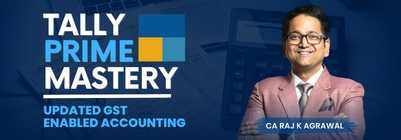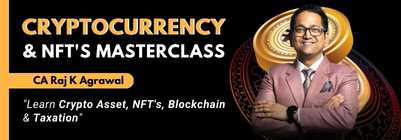To unlock India’s potential, why curb on risky derivatives, investing in passive funds are the ways to go, explains Dinesh Thakkar of Angel One Along with passive mutual funds, stricter regulation against futures and options only serves to benefit the retail investors in the long run, Dinesh Thakkar tell ET Wealth
Regulatory interventions in F&O space are essential when viewed through the lens of investor protection and market sustainability, Dinesh Thakkar tells Sanket DhanorkarDo you believe the market has borrowed returns from the near future or is there enough left on the table?
Markets always tend to price themselves based on the expectations of future growth. When we evaluate the current valuations through the lens of anticipated economic growth, small- and mid-cap stocks appear to be trading at stretched levels compared to their historical averages. On the brighter side, large-cap stocks seem more resilient, backed by stronger growth metrics and better return on equity.
The ongoing structural shifts in the Indian economy—increasing wealth in India’s tier 2 and smaller cities, growing financialisation of savings, wider adoption of new asset classes and accelerating digital transformation—are powerful tailwinds for India’s long-term growth story. Further, India’s demographic dividend, with a young and expanding workforce, positions the economy for sustained growth over the next 25 years. Despite the recent tepid growth due to curtailed government spending, revival in public and private investments could drive GDP growth at a healthy 6.5–7% annually. At Angel One, we firmly believe that the nation’s economic fundamentals remain strong. The long-term growth story is very much intact. As a nation, we have only just begun to unlock our potential.
You have decided to move away from the zero brokerage model to adjust to new business realities. What makes you confident this is the right path?
Our decision to move away from the zero brokerage model reflects our commitment to keep up with the changing realities of the market. When we initially adopted the zero brokerage model for cash delivery, it was a strategic step to make equity investing more accessible. By offering free brokerage, we sought to encourage first-time investors to enter the markets and lower the barriers to participation. The model was sustainable because of the discounts we received for handling higher transaction volumes. However, as market dynamics evolved, those volumelinked discounts disappeared. This made it necessary for us to recalibrate our pricing to ensure that it remains sustainable. By moving to a clear, cost-based pricing structure, we are confident that we can make our offerings even more robust. Ultimately, this shift positions us to deliver long-term value to our investors, while reinforcing our role as a key player in the financial ecosystem. It also shows our ability to adapt to changing conditions.
Will the regulatory curbs in F&O disrupt the market? Is the clampdown warranted?
Regulatory interventions in the financial markets have often faced a pushback, but when viewed through the lens of investor protection and market health, such measures prove to be essential.
The growth in market volumes, including in F&O segment, underscores the increasing participation by individual investors and the growing acceptance of equities as an asset class. With such strong growth opportunities, it is crucial that regulations also evolve. The recent regulatory changes aim to create the right guardrails to protect investors and ensure a more sustainable, balanced trading environment. In the long run, these measures will build trust and transparency, and safeguard retail investors. At Angel One, we have seen this play out before. For example, when the peak margin regulations were introduced, they initially caused some disruptions. Over time, they helped make the markets safer and more resilient.
Is diversifying into wealth management, loans, etc., the only way for brokerages to remain profitable?
For Angel One, expanding into services like wealth management and loans was all about enhancing client experience. Our goal has been to provide users with a holistic financial journey on a single platform while also increasing customer value. With the broking business already operating on a sustainable model, we can profitably onboard new clients. As we bring in young, first-time investors from tier 2/3 cities and beyond, it’s crucial that we support them through their financial journey from start to finish. By offering a wider range of products, we can capture every stage of our clients’ financial lifecycle and build a sustainable, long-term business. At the same time, we strongly believe that the technology-led disruption we brought to the broking space can also be replicated in other segments. This thinking is what led us to focus on creating a Super App. Today’s younger consumers want an allin-one solution that can help them manage their finances seamlessly. The transition from a broking app to a Super App is all about delivering a delightful, user-friendly experience.
Why are you specifically targeting the passive segment in your AMC vertical? Do you feel the game is over for active management in India?
Passive funds are often a better fit for retail investors because they simplify active fund management. By investing in well-known indices, retail investors can enjoy solid returns without the stress of picking individual funds. Active funds demand consistent outperformance and depend heavily on fund managers—an unnecessary hassle for retail investors. While we may offer innovative products like Smart Beta funds for investors who want a slight edge, our primary focus will be on passive offerings like ETFs and index funds. Unlike AMCs with large, active portfolios, we can aggressively promote passive products and educate retail investors to build a diversified portfolio without the guesswork.
The Author is Chairman and Managing Director, Angel One
This story originally appeared on: India Times - Author:Faqs of Insurances




























































